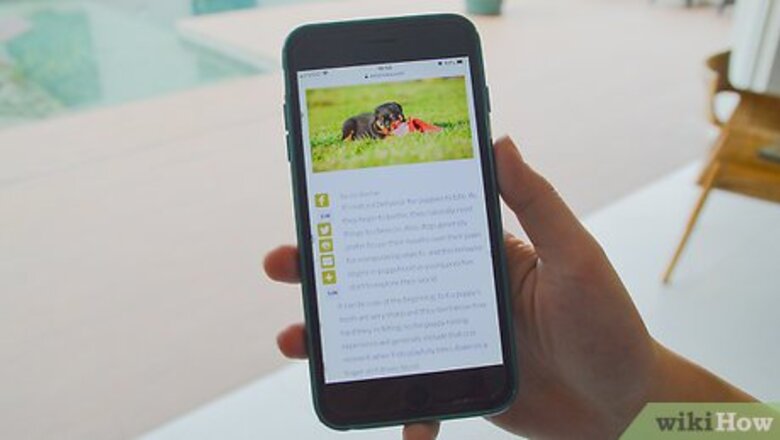
views
Teaching Puppy Bite Inhibition
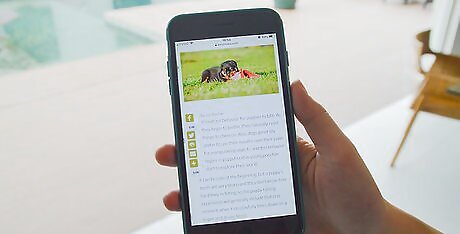
Consider how mother dogs and other puppies teach puppies not to bite. If a puppy bites another puppy or its mother too hard, then the bitten pup will give a loud “yip.” This startles the biting puppy and causes him to stop biting. If he continues to bite, then the bitten pup will yelp and run away. Since the puppy doing the biting wants to play he’ll learn to stop biting or else play stops. You can use a similar procedure to teach your puppy not to bite you.
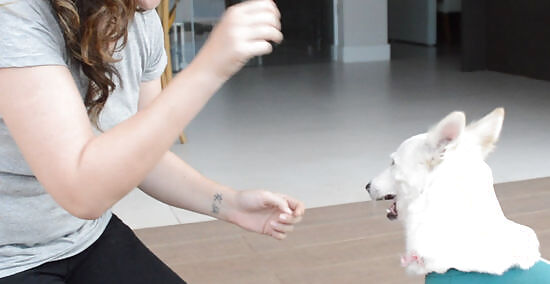
Let out a loud “yip” if your puppy bites you. If during play, your puppy starts to mouth you and bites or nips, then give a loud, high-pitched “yip.” This should startle your puppy and cause him to stop biting you. Let your hand go limp at the same time that you “yip” and stop playing. If he keeps biting, then walk away from your puppy and only restore attention when he is behaving properly. If he does not stop, then try saying “Too bad!” in a stern voice and walk away from your puppy. Go into another room and ignore your puppy for 10-20 seconds. Doing this will act as a time out and help to teach your puppy that biting too hard makes the play stop.
Praise your puppy for good behavior. When your puppy does back off, make sure that you give him lots of praise and start playing again. Keep repeating this process every time your puppy nips or bites and he should become gentler and gentler.
Using Redirection
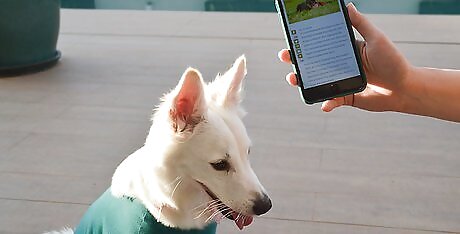
Learn about redirection. Another useful training method to use for biting and other undesirable behaviors is redirection. With this training method, the goal is to redirect your puppy’s attention away from your hand or body onto something else that he is allowed to bite, such as a chew toy. Keep in mind that puppies are often teething at the same time that they are learning about not biting, so it is important to make sure that your puppy has appropriate chew toys. Doing so will help to alleviate some of the discomfort in his mouth while also teaching him good behavior.
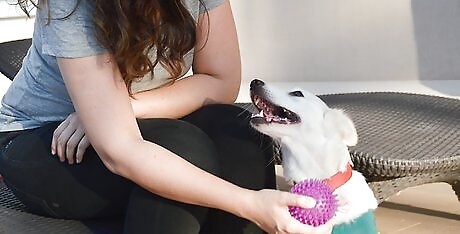
Give your puppy a chew toy to redirect his attention away from your hand. If your puppy starts biting your hand, one way to get him to stop is to offer him a chew toy to redirect his attention away from you. Keep a chew toy handy when you are spending time with your puppy to help teach him that it is okay for him to chew on a toy, but not on your hand.
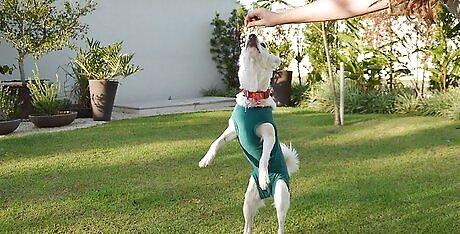
Play with your puppy. Another good redirection is to play with your puppy. Try playing tug-of-war with your puppy if he starts biting you. Or if your puppy prefers to play fetch, take your puppy outside and throw his favorite ball or Frisbee for him. Whatever your dog likes to do for play can be used as a redirection from biting.
Using Other Strategies
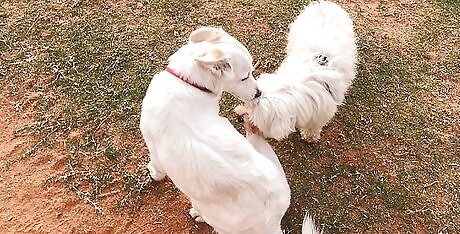
Socialize your puppy. Puppy socialization is important to help your puppy learn normal dog behaviors. Socialization starts from a young age when your puppy is with its mother and other puppies. You take over socialization training after the puppy leaves its littermates and mom (around 8 weeks of age) up until it reaches 12-14 weeks of age. During this time, expose your puppy to other puppies, dogs, and cats, humans (of all shapes, sizes, and sexes) along with different situations such as car ride, parks, and the neighborhood activity. All this socialization serves a purpose related to biting because a well-socialized dog will know how to play with other dogs and will not bite at the first sign of a threat.
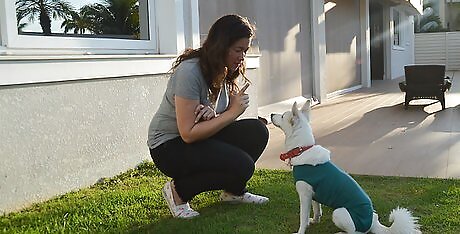
Discipline your puppy as needed. Do not let your puppy get away with everything when you bring it home. Set clear boundaries such as where the puppy is allowed to be in the house, when it is allowed to eat, and what it can play with. If your puppy violates any boundaries, discipline him right away and be consistent. For example, if the puppy is not allowed to get up on the furniture, tell your puppy “No!” and put him back on the floor right away. Never strike your puppy. This will only instill fear in it and fearful puppies (and dogs) do not make good companions. Instead, discipline your puppy by teaching him what you want and then rewarding positive behavior. To reward your puppy, you can give him a small treat and lots of praise. If your puppy does something bad, then ignore him until the bad behavior stops.
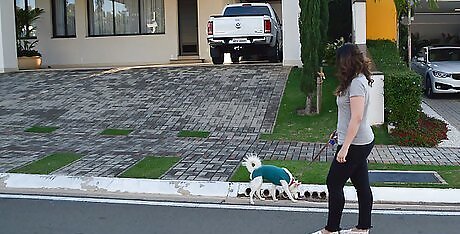
Exercise your puppy often. Make sure that your puppy is getting enough exercise and safe play every day. Puppies often bite or nip because they want to play or are bored. Teach your puppy that games like fetch, Frisbee, and tug-of-war are acceptable for playtime. Taking your puppy for a short walk once or twice a day is a good way for both of you to get exercise. Keep it short (less than 15 minutes) as young puppy’s bones and joints are still forming and longer walks can harm them. Do NOT take your puppy for jogs or runs until he is over a year old. You should also have at least 15-30 minutes of playtime each day where the puppy can burn off some excess energy. Doing this will help your puppy focus a bit more during training sessions—including not biting—once he has calmed down from a good solid play period.
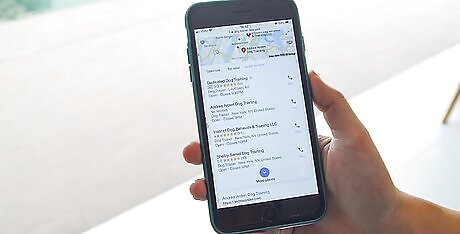
Contact a professional. If you are still having serious problems with puppy biting and none of the at-home methods you've tried seem to be working, consider taking your dog to a certified professional pet behaviorist or to a certified professional dog trainer. Many pet stores offer obedience courses run by trained professionals who can help you teach your puppy not to bite.




















Comments
0 comment